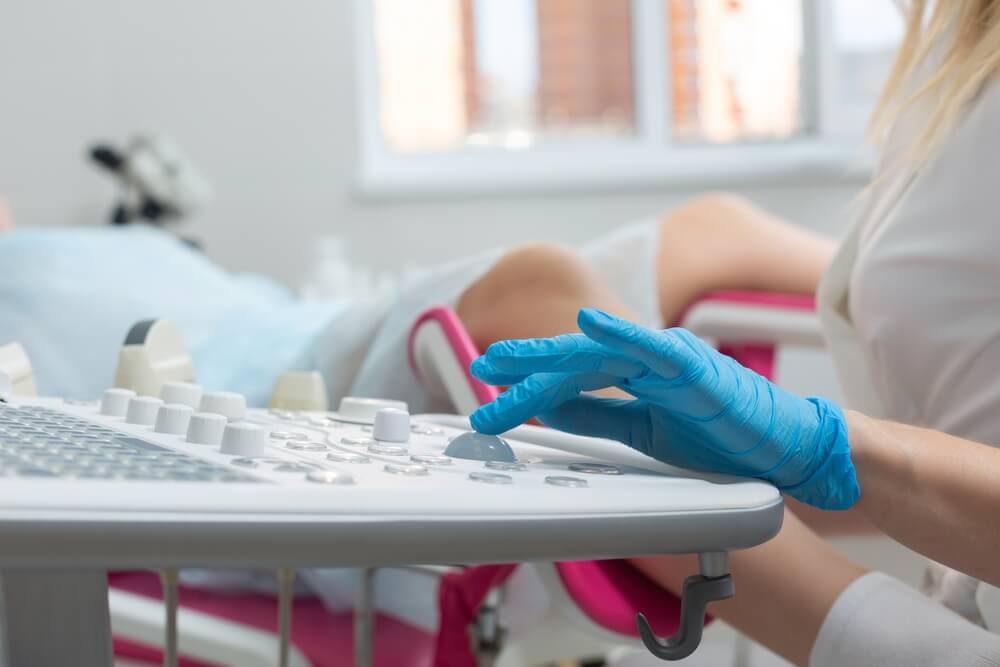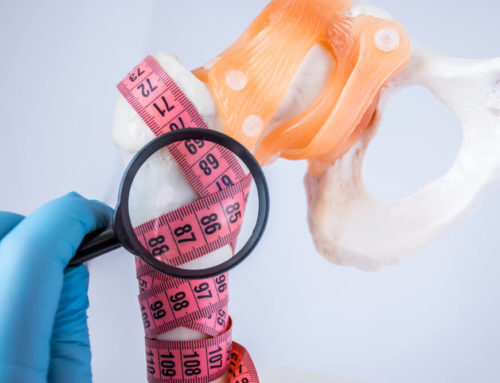Vaginitis is a common condition that affects many women at some point in their lives. Understanding what it is, its causes, symptoms, and treatments is vital for maintaining vaginal health. This extensive guide is designed to provide an in-depth look at vaginitis, from its definition to the various ways it can be managed and treated. For those seeking professional consultation and care, a female gynecology specialist in Margate, Florida, can provide comprehensive guidance and treatment.
Understanding Vaginitis
Vaginitis is a vaginal inflammation that can cause pain, discharge, and itching. It’s considered to be one of the more common gynecological problems. The cause is usually a change in the normal balance of vaginal bacteria, an infection, or lower levels of estrogen after menopause.
What Is Vaginitis?
What is vaginitis? It is a term used to describe various conditions that cause infection or inflammation of the vagina. These can be caused by bacteria, fungi, viruses, or reduced estrogen levels.
Causes of Vaginitis
Understanding what causes vaginitis is crucial in its prevention and treatment. The most common causes include:
- Bacterial Vaginosis: Caused by an overgrowth of normal vaginal bacteria.
- Yeast Infections: Overgrowth of a fungus called Candida.
- Trichomoniasis: A sexually transmitted infection caused by a parasite.
- Chemical Irritants: Such as soaps, fabric softeners, douches, and spermicides.
- Estrogen Deficiency: Typically occurs after menopause.
Identifying Vaginitis Symptoms
Vaginitis symptoms can vary depending on the cause but often include:
- Vaginal Discharge: Color and consistency can vary based on the underlying cause.
- Itching: This is a common symptom, particularly in yeast infections.
- Pain: During intercourse or while urinating.
- Odor: A fishy smell is often associated with bacterial vaginosis.
Diagnosing Vaginitis
Diagnosis usually involves:
- Pelvic Exam: To look for signs of inflammation and discharge.
- pH Testing: Vaginal pH levels can indicate the type of vaginitis.
- Microscopic Evaluation: Examining a sample of vaginal discharge under a microscope.
- STI Screening: Especially if trichomoniasis is suspected.
Vaginitis Treatment Options
Vaginitis treatment depends on the cause:
- Antibiotics: For bacterial vaginosis and trichomoniasis.
- Antifungal Medications: For yeast infections, available as creams, ointments, tablets, or suppositories.
- Hormone Therapy: For those with atrophic vaginitis due to reduced estrogen levels.
Home Remedies and Lifestyle Changes
In addition to medical treatment, lifestyle changes can help manage and prevent vaginitis:
- Good Hygiene Practices: Such as wearing breathable cotton underwear and avoiding irritating agents.
- Probiotics: This may help maintain a healthy balance of bacteria in the vagina.
- Dietary Changes: Reducing sugar intake can be beneficial, particularly for yeast infections.
Preventing Vaginitis
Prevention strategies for vaginitis include:
- Safe Sex Practices: Using condoms can reduce the risk of sexually transmitted infections.
- Avoiding Douching: Douching can disrupt the natural balance of bacteria in the vagina.
- Regular Gynecological Check-ups: To maintain vaginal health and early detection of issues.
Understanding Different Types of Vaginal Infections
It’s important to differentiate between various types of vaginal infection as the treatment for each can differ:
- Bacterial Infections: Often treated with antibiotics.
- Yeast Infections: Require antifungal treatment.
- Parasitic Infections: Such as trichomoniasis, treated with specific anti-parasitic medications.

Complications Associated with Vaginitis
If left untreated, vaginitis can lead to complications such as:
- Increased Risk of STIs: Including HIV.
- Pregnancy Complications: Such as premature birth or low birth weight.
- Pelvic Inflammatory Disease (PID): In severe cases.
The Role of Hormonal Changes in Vaginitis
Hormonal fluctuations throughout a woman’s life can significantly impact the risk and severity of vaginitis. Understanding these hormonal changes is crucial in preventing, diagnosing, and treating various forms of this condition effectively.
Hormones and Vaginal Health
- Estrogen’s Impact: Estrogen plays a vital role in maintaining the health and balance of the vaginal environment. It promotes the growth of lactobacilli, beneficial bacteria that produce lactic acid, helping maintain an acidic pH in the vagina. This acidity is crucial for inhibiting the growth of harmful bacteria and yeast.
- Menstrual Cycle Variations: During the menstrual cycle, hormonal fluctuations can temporarily alter the vaginal environment, potentially making it more susceptible to infections.
- Pregnancy-Induced Changes: Pregnancy brings about significant hormonal changes, notably increased levels of estrogen and progesterone, which can affect vaginal flora and pH balance, leading to a heightened risk of vaginitis.
Menopause and Vaginitis
- Decreased Estrogen Levels: During menopause, the body’s production of estrogen decreases significantly. This reduction can lead to thinning and drying of the vaginal walls, known as atrophic vaginitis or vaginal atrophy.
- Symptoms of Atrophic Vaginitis: Women experiencing atrophic vaginitis may face symptoms like vaginal dryness, itching, irritation, and discomfort during intercourse. These symptoms can often be mistaken for a chronic infection.
- Treatment of Atrophic Vaginitis: Hormonal therapies, such as local estrogen treatments, can be effective in managing the symptoms of atrophic vaginitis. Non-hormonal lubricants and moisturizers can also provide relief.
Postpartum Hormonal Changes
- Shifts After Childbirth: Following childbirth, hormonal levels, particularly estrogen, can fluctuate, affecting the vaginal environment. These changes, coupled with healing tissues, can increase susceptibility to vaginitis.
- Breastfeeding Considerations: Breastfeeding can prolong the period of reduced estrogen levels, potentially extending the susceptibility to vaginal infections during the postpartum period.
Hormonal Contraceptives and Vaginitis
- Contraceptive-Induced Changes: Hormonal contraceptives can alter the natural hormonal balance in the body, potentially impacting vaginal flora. Some women may experience increased yeast infections or bacterial vaginosis while using certain hormonal contraceptives.
Managing Hormonal Fluctuations
- Regular Monitoring: Women experiencing hormonal changes due to menopause, childbirth, or contraceptive use should regularly monitor for signs of vaginitis and seek medical advice if symptoms arise.
- Lifestyle Adjustments: Diet, exercise, and stress management can play a role in maintaining overall hormonal balance, indirectly affecting vaginal health.
The Importance of Professional Diagnosis and Treatment
Self-diagnosis and treatment of vaginitis can be risky. Professional diagnosis and treatment are crucial for effective management and prevention of complications.
Navigating Pregnancy and Vaginitis
Pregnant women experiencing vaginitis symptoms should seek prompt medical attention, as certain vaginal infections can affect pregnancy outcomes.
Pregnancy is a time of significant physiological changes, which can increase susceptibility to vaginitis. Managing this condition during pregnancy is crucial, not only for the comfort of the expectant mother but also for the health of the developing baby.
Increased Risk of Vaginitis During Pregnancy
- Hormonal Fluctuations: Pregnancy hormones can alter the vaginal environment, making it more susceptible to infections.
- Changes in pH Levels: The vaginal pH becomes more acidic during pregnancy, which can disrupt the balance of vaginal flora.
- Altered Immune System Function: Pregnancy modifies the immune system’s response, potentially increasing vulnerability to infections.
Monitoring for Vaginitis Symptoms in Pregnancy
Expectant mothers should be vigilant for signs of vaginitis, such as:
- Unusual Vaginal Discharge: Any change in color, consistency, or smell should be noted.
- Itching or Irritation: These symptoms can indicate a yeast infection or other types of vaginitis.
- Discomfort or Pain: Any persistent discomfort in the vaginal area should be evaluated.
Safe Treatment of Vaginitis in Pregnancy
The treatment of vaginitis during pregnancy requires careful consideration of the safety of both the mother and the fetus:
- Medication Choices: Some medications commonly used to treat vaginitis may not be safe during pregnancy. It is crucial to use only those that are proven to be safe for pregnant women.
- Topical Treatments: In some cases, topical treatments may be preferred over oral medications to minimize systemic exposure to the drug.
- Regular Screening: Pregnant women are often screened for bacterial vaginosis and yeast infections during prenatal visits, even if they are asymptomatic, due to the potential risks associated with these infections during pregnancy.
Preventing Vaginitis During Pregnancy
Preventive measures can be especially beneficial for pregnant women:
- Maintain Good Hygiene: Gentle cleansing of the genital area and wearing breathable, cotton underwear can help prevent irritation and overgrowth of harmful bacteria.
- Diet and Probiotics: Eating a balanced diet and including probiotic-rich foods can support a healthy vaginal environment.
- Avoid Irritants: Pregnant women should avoid using scented soaps, vaginal douches, and other potential irritants in the genital area.
Complications of Vaginitis in Pregnancy
Untreated vaginitis during pregnancy can lead to complications such as:
- Preterm Labor: Some infections can increase the risk of early labor.
- Low Birth Weight: Babies born to mothers with untreated vaginal infections may have a lower birth weight.
- Infection Transmission to Baby: Certain infections can be transmitted to the baby during childbirth.
Consulting Healthcare Providers
Pregnant women experiencing symptoms of vaginitis should consult their healthcare provider for appropriate testing and treatment. Regular prenatal visits provide an opportunity to discuss any concerns related to vaginitis and receive timely care.
Understanding Recurrent Vaginitis
Recurrent vaginitis is a challenging condition where symptoms reappear after treatment. It’s important to identify the underlying causes, which may include persistent imbalances in vaginal flora, resistance to standard treatments, or reinfection. Managing recurrent vaginitis might involve longer-term treatment plans, changes in medication, or addressing underlying health issues like diabetes that can predispose women to infections.
Vaginitis in Adolescent Females
Adolescent females can also experience vaginitis, often related to poor hygiene practices, the use of irritating products, or hormonal changes during puberty. Educating young women about proper genital care, the risks of douching, and the importance of safe sexual practices is crucial in preventing vaginitis at a young age.
The Connection Between Vaginitis and Mental Health
Dealing with ongoing vaginal infection symptoms can have a significant impact on a woman’s mental health. The discomfort and stress associated with vaginitis can lead to anxiety, lowered self-esteem, and, in some cases, depression. It’s important for healthcare providers to address these mental health aspects when treating patients with chronic or recurrent vaginitis.
Role of Partner Treatment in Vaginitis Management
In cases of vaginitis caused by sexually transmitted infections, it’s essential to consider the treatment of sexual partners. Partner treatment can prevent reinfection and is a critical step in the management of sexually transmitted forms of vaginitis, such as trichomoniasis.
Differential Diagnosis: Other Conditions Mimicking Vaginitis
Certain conditions can mimic the symptoms of vaginitis, such as urinary tract infections (UTIs), sexually transmitted infections (STIs), and dermatological conditions. A thorough evaluation and differential diagnosis are important to ensure appropriate treatment.

The Importance of Personal Hygiene in Preventing Vaginitis
Good personal hygiene plays a key role in preventing vaginitis. Simple practices like wiping from front to back, changing out of wet or sweaty clothes promptly, and avoiding harsh soaps or body washes in the genital area can reduce the risk of infection.
Impact of Clothing Choices on Vaginitis
Tight-fitting clothing and non-breathable fabrics can create a moist environment conducive to the growth of yeast and bacteria. Opting for loose, breathable clothing, especially underwear made of natural fibers like cotton, can help prevent vaginitis.
The Role of Diet in Managing Vaginitis
Diet may influence the recurrence and severity of vaginitis. A diet high in sugars and simple carbohydrates can promote the growth of yeast, while a balanced diet rich in vegetables, proteins, and whole grains can support overall vaginal health. Probiotic-rich foods like yogurt can also be beneficial.
Future Directions in Vaginitis Research
Ongoing research in the field of vaginitis is focused on better understanding the microbiome of the vagina, the development of more effective treatments, and the prevention of recurrent infections. This research is crucial in developing new strategies to manage and treat vaginitis more effectively.
Incorporating Natural Remedies in Vaginitis Management
Alongside traditional medical treatments, some women explore natural remedies as supplementary options for managing vaginitis. These may include herbal suppositories, tea tree oil applications, or dietary supplements like garlic and cranberry. While anecdotal evidence suggests these remedies can be helpful, they should be used with caution and in consultation with a healthcare provider to ensure safety and effectiveness.
Understanding the Role of the Vaginal Microbiome
Recent studies have emphasized the importance of a healthy vaginal microbiome in preventing vaginitis. The balance of bacteria, particularly Lactobacilli, plays a crucial role in maintaining vaginal pH and preventing overgrowth of harmful organisms. Disruptions to this microbiome can lead to conditions like bacterial vaginosis and yeast infections. Probiotic supplements and probiotic-rich foods are being studied for their potential role in supporting a healthy vaginal microbiome.
Navigating Sex and Intimacy During Vaginitis
Vaginitis can impact sexual comfort and libido. Open communication with partners about the condition and its symptoms is important. Using lubricants during sexual activity can help alleviate discomfort, and in cases of infectious vaginitis, abstaining from sexual activity or using protection is advised to prevent transmission.
Vaginitis and its Connection to Other Health Conditions
Women with certain chronic health conditions, such as diabetes or immunosuppressive disorders, may be more prone to recurrent or severe forms of vaginitis. Managing these underlying conditions is a critical part of preventing and treating vaginal infections.
Lifestyle Factors Influencing Vaginitis
Lifestyle factors such as stress, lack of sleep, and poor diet can affect the body’s immune response and hormonal balance, potentially leading to an increased risk of vaginitis. Adopting a healthy lifestyle with stress management techniques, adequate sleep, and a balanced diet can support overall health and reduce the likelihood of vaginal infections.
The Impact of Vaginitis on Fertility
Vaginitis can have a profound impact on a woman’s fertility, affecting her ability to conceive and maintain a healthy pregnancy. Understanding this impact is crucial for women trying to conceive and for those who plan to do so in the future.
Infections Leading to Fertility Issues
- Bacterial Vaginosis (BV) and Fertility: BV has been linked to endometritis, an inflammation of the uterine lining, which can interfere with the implantation of an embryo. Women with BV may also have a higher risk of developing pelvic inflammatory disease (PID), a more serious condition that can damage the fallopian tubes and other parts of the reproductive system, leading to infertility.
- Yeast Infections and Conception: While yeast infections are less likely to directly impact fertility, the discomfort and inflammation they cause can make sexual intercourse painful, indirectly affecting a couple’s ability to conceive.
- Trichomoniasis and Its Effects: Trichomoniasis, a sexually transmitted infection, can lead to inflammation of the pelvic organs, potentially causing scarring that blocks the fallopian tubes, preventing sperm from reaching an egg.
Vaginitis During Assisted Reproductive Technologies (ART)
- Impact on ART Success Rates: Women undergoing ART procedures like in-vitro fertilization (IVF) may find that vaginitis can impact the success rates of these treatments. Infections can affect the quality of cervical mucus, hinder sperm motility, and alter the vaginal environment, making it less conducive to conception.
- Pre-ART Screening: It’s important for women undergoing ART to be screened for vaginal infections and treated accordingly to optimize the chances of successful implantation and pregnancy.
Community and Support Groups for Vaginitis
Joining community groups or online forums for individuals with recurrent vaginitis can provide emotional support and shared experiences. These platforms can offer tips, advice, and comfort in knowing others are facing similar challenges.
Conclusion
Understanding vaginitis – its causes, symptoms, and treatment options – is essential for female health. If you suspect you have vaginitis, seek professional medical advice for the correct diagnosis and treatment. For comprehensive and compassionate care in this field, Fern F. Taisenchoy-Bent, MD LLC, offers expert gynecological services, ensuring effective management of vaginitis and overall female health.










